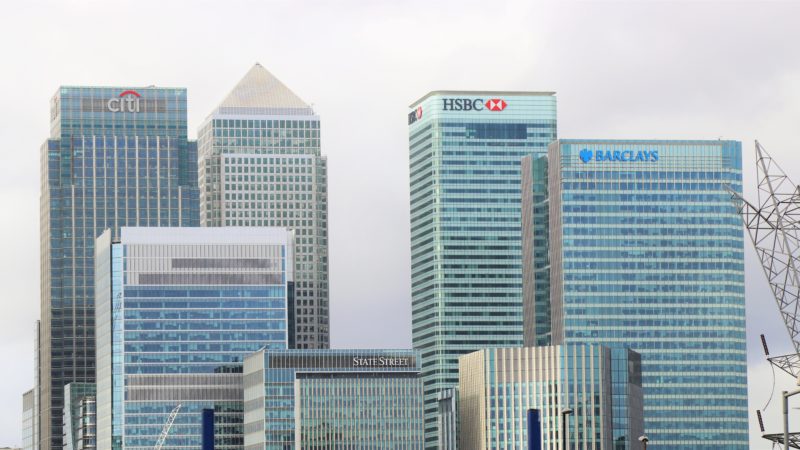To build the economy we need, it's time to democratise the workplace, writes Prof Prem Sikka.

Rejuvenation of the UK economy is a major issue in the current general election.
This cannot be done without a focus on the long-term well-being of companies – and abandoning the current obsession with short-term returns.
Short-termism
A number of reports have identified short-termism as a major factor in UK’s poor economic performance. Short-termism is linked to the UK’s infatuation with shareholder-centric model of corporate governance and the belief that shareholders can somehow invigilate large companies.
This ignores the fact that the average shareholding period in listed companies has declined from about five years in the mid-1960s to around two years in the 1980s, and may now be around one month. Shareholders are generally passive, function more like speculators looking for quick returns and have little interest in the long-term success of companies.
As the Kay Review put there is a “tendency to make decisions in search of immediate gratification at the expense of future returns”.
The typical tenure of a FTSE CEOs is around five years and their survival depends on appeasement of shareholders. Amongst developed economies the UK companies pay out the highest proportion of corporate earnings in dividends.
At Carillion, directors inflated profits by leaving worthless contracts in the balance sheet, and borrowed extensively to pay high dividends. Its collapse inflicted damage to some 30,000 supply chain creditors, employees, pension schemes and taxpayers.
Moving to the long-term
Even business people are advocating a move away from maximising shareholder returns. Jack Welch, former CEO of General Electric described obsession with maximising shareholder value as “a dumb idea” and added that “shareholder value is a result, not a strategy…Your main constituencies are your employees, your customers and your products”.
The Parliamentary Banking Standards Commission noted that the legal requirement for directors to prioritise shareholder interests was a factor in the 2007-08 banking crash.
It urged the government to amend Section 172 of the Companies Act 2006 and “remove shareholder primacy in respect of banks, requiring directors of banks to ensure the financial safety and soundness of the company ahead of the interests of its members”. The government did nothing. Of course, the problems are not just confined to banks.
Companies need to focus on stakeholders and the long-term. A McKinsey report noted that companies with a long-term focus deliver higher investment, research and development, growth, employment, financial performance, shareholder returns and lower earnings volatility.
Major European countries, such as France, Germany and Scandinavian countries, have embraced a stakeholder model by giving employees seats on company boards. This brings a variety of diverse worldviews to decisions with emphasis on co-operation and inclusion amongst stakeholders and leading to economic stability, higher investment, productivity, growth and wages. The UK did not follow these developments. But the general election presents an opportunity to carve a new path.
Party manifestos
The Conservative manifesto has nothing to say about short-termism, the nature of corporation or how to arrest economic stagnation. By default, it supports status-quo.
The Liberal Democrat manifesto wants to “Strengthen worker participation in decision-making, including staff representation on remuneration committees, and require all UK-listed companies and all private companies with more than 250 employees to have at least one employee representative on their boards with the same legal duties and responsibilities as other directors”.
The manifesto does not say whether the “employee representative” will be elected by workers or appointed as a token gesture by executive directors. Lib Dems say they would encourage employees to request shares in large companies, which are to be held in trust.
The Labour manifesto embraces a stakeholder model of corporate governance. In line with European practices for large companies, Labour would “require one-third of boards to be reserved for elected worker-directors”. Companies will have a choice to having workers on a unitary board or through a two-tier board.
Germany has a system of two-tier boards – an Executive Board elected by shareholders is responsible for day-to-day operations of the company and a Supervisory Board with possible 50% representation from directors elected by employees. The Supervisory Board exercises strategic oversight.
Labour also wants to rewrite the Companies Act so that directors have a duty to promote the long-term interests of employees, customers, the environment and the wider public.
As a counter to short-termism, French law provides for double votes for those holding shares for at least two years. To some extent, this can counter the power of short-term speculators. The Labour party is also considering the same. It also wants to broaden the shareholder base by requiring large companies to set up Inclusive Ownership Funds. The aim is to ensure that eventually up to 10% of a company will be owned collectively by employees and held in trust.
The Conservative Party is clinging to a dysfunctional shareholder-centric model of corporate governance. In contrast, Labour is advancing a stakeholder model of corporate governance which promotes co-operation amongst all stakeholders.
We need to prioritise the long-term well-being of companies to ensure that they work for the benefit of many. Let’s democratise the workplace.
Prem Sikka is professor of accounting at the University of Sheffield and emeritus professor of accounting at the University of Essex. He is a contributing editor to LFF and tweets here.
Left Foot Forward doesn't have the backing of big business or billionaires. We rely on the kind and generous support of ordinary people like you.
You can support hard-hitting journalism that holds the right to account, provides a forum for debate among progressives, and covers the stories the rest of the media ignore. Donate today.



